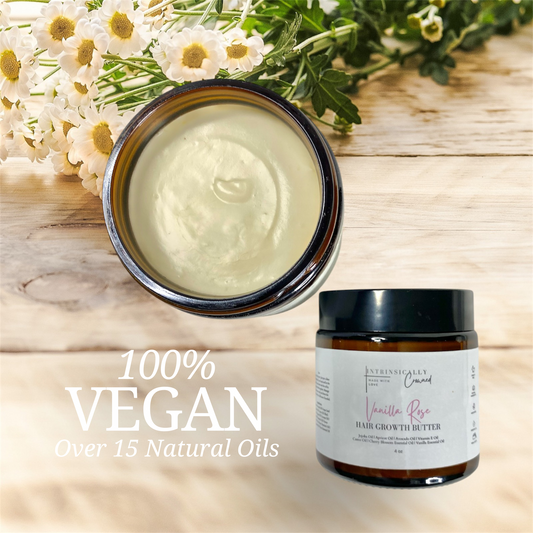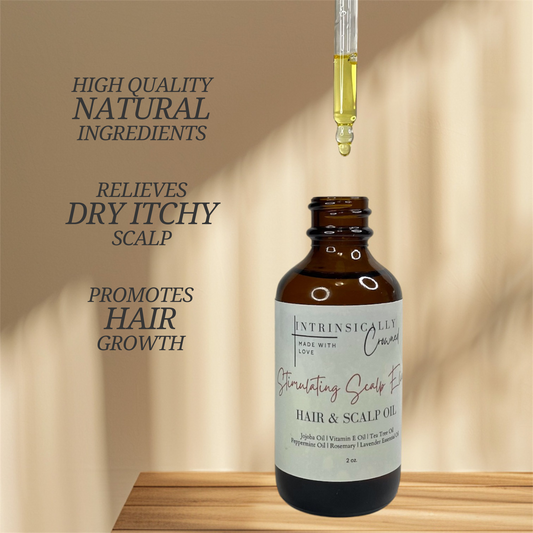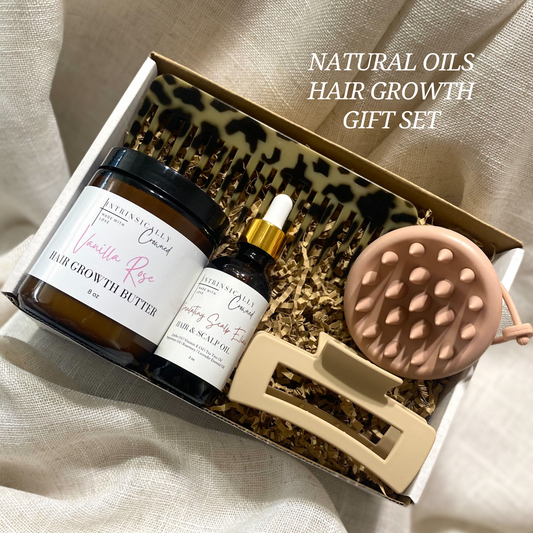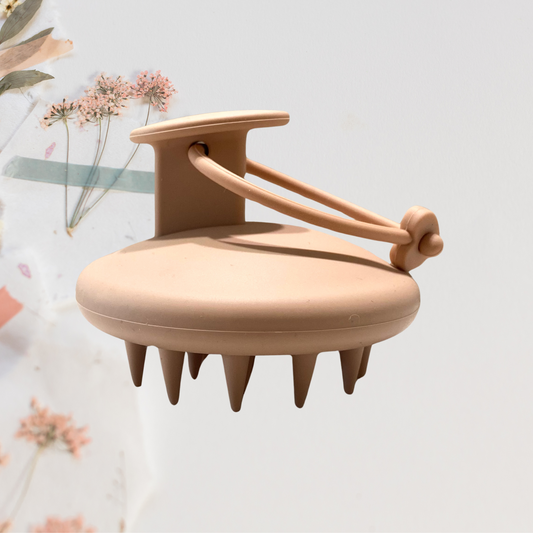
What Makes Hair Grow, or NOT: Understanding Factors that Affect Hair Growth
Share
Okay, listen Queens! We are always concerned about our hair growth and often wonder what factors contribute to it.
Hair growth is a natural process that occurs in cycles, and the rate of growth can vary depending on a variety of factors.
Understanding what affects our hair growth and how to promote it can help us achieve our desired hair length and thickness.
Several factors can influence the growth of our crown, including genetics, age, and overall health. Genetics plays a significant role in determining hair growth patterns, such as hair thickness, texture, and color.
As we age, our hair growth rate may slow down due to changes in hormone levels and decreased blood flow to hair follicles. Additionally, certain medical conditions, medications, and lifestyle factors such as stress and poor nutrition can also impact hair growth.
While some of us may have naturally slower hair growth rates, there are several ways to promote healthy hair growth. Eating a balanced diet rich in vitamins and minerals, staying hydrated, avoiding harsh styling products and treatments, and reducing stress can all help support healthy hair growth.
Additionally, using hair care products designed to nourish and strengthen our crown can also promote growth and prevent damage.
The Science Behind Hair Growth
The Hair Growth Cycle

Hair growth is a complex process that involves various stages. The hair growth cycle consists of three phases: anagen, catagen, and telogen.
The anagen phase is the growth phase, during which the hair shaft grows longer. This phase typically lasts between two to seven years, depending on individual genetics and other factors.
The catagen phase is the transitional phase, during which the hair follicle shrinks and detaches from the blood supply. This phase typically lasts for about two weeks.
The telogen phase is the resting phase, during which the hair follicle remains dormant. This phase typically lasts for about three months.
Factors That Affect Hair Growth
Various factors can affect your hair growth, including genetics, age, hormonal changes, and lifestyle factors.
Genetics plays a significant role in determining hair growth patterns. People with a family history of hair loss are more likely to experience hair loss themselves.
Age is another factor that affects hair growth. As we age, their hair growth rate slows down, and hair may become thinner and more brittle.
Hormonal changes can also affect hair growth. For example, during pregnancy, many women experience increased hair growth due to hormonal changes. However, after giving birth, the hair growth rate may slow down, and hair may fall out.
Lifestyle factors, such as stress, diet, and exercise, can also affect hair growth. A healthy diet that includes essential vitamins and minerals can promote hair growth, while stress and lack of exercise can have negative effects on hair health.
What Slows Down Hair Growth
Hair growth is a complex process that is influenced by a variety of factors. While some of us are blessed with fast-growing hair, others struggle to achieve the same level of growth. Here are some factors that can slow down your hair growth:
Environmental Factors
The environment can have a significant impact on hair growth. Exposure to harsh chemicals, extreme temperatures, and pollution can damage hair follicles, leading to slower growth. Additionally, excessive exposure to the sun can cause dryness and damage to the hair, making it more prone to breakage.
Medical Conditions
Several medical conditions can affect hair growth. Hormonal imbalances, such as those caused by thyroid disorders, can lead to hair loss and stunted growth. Nutritional deficiencies, such as low iron levels, can also affect hair growth. Additionally, certain medications, such as chemotherapy drugs, can cause hair loss and slow down growth.
Genetics
Genetics plays a significant role in hair growth. Some people are genetically predisposed to slower hair growth, while others have a genetic tendency to grow hair quickly. Additionally, some people are more prone to hair loss as they age, which can affect the overall thickness and length of their hair.
Why Some People Have Trouble Growing Hair
Hair Type and Texture
Hair type and texture can play a significant role in how fast hair grows. Queens with fine hair may have a harder time growing hair because their hair is naturally thinner and more delicate. On the other hand, queens with thick and coarse hair may have an easier time growing hair because their hair is stronger and less prone to breakage. Additionally, curly hair tends to grow slower than straight hair because the shape of the hair follicle can affect the rate of growth.
Hair Care Habits
Bad hair care habits can also slow down hair growth. Frequent use of heat-styling tools, such as flat irons and blow dryers, can damage hair and cause it to break off. Tight hairstyles, such as braids and ponytails, can also put stress on the hair and lead to breakage. Using harsh chemicals, such as hair dyes and relaxers, can also damage hair and slow down growth.
On the other hand, when we listen to our crown and take good care of our crown by regularly washing and conditioning it, and avoiding damaging habits, we may have an easier time growing our crown.
Diet and Nutrition
Diet and nutrition can also impact hair growth. When we do not consume enough protein, vitamins, and minerals we may experience slower hair growth. Additionally, when we do not drink enough water we’ll experience dry, brittle hair that is more prone to breakage. A diet that is rich in fruits, vegetables, lean protein, and healthy fats can promote healthy hair growth.
Listen to Your Crown
First and foremost... this is what you have to do! I can't say it enough. This is the key…LISTEN TO YOUR CROWN.

First and foremost... this is what you have to do! I can't say it enough. This is the key…LISTEN TO YOUR CROWN.
She’ll tell you what she likes and dislikes.
She’ll tell you when she’s dry and needs to be moisturized.
Treat your crown like the jewel she is. And, BE PATIENT.
With love,
Dana




